| 10/08/2012 Senior Centers Offering Evidence Based Programs |
|||
Senior adults have more long-term chronic health conditions such as heart disease, arthritis, diabetes and injuries such as falls. As they experience these health changes, there is a higher economic and health care cost to this age group. This makes it more important they become involved in evidenced based health care programs. This will help them to adopt healthy self-management behaviors that will increase their well-being and reduce health care cost. The Administration on Aging (AoA) and the Centers for Medicare and Medicaid (CMS) are working together to bring Evidence Based Health Promotion (EBHP) programs to seniors across the United States. The Area Agency on Aging of Northwest Arkansas (AAANWA) is the non-profit agency that will be implementing the EBHP in their nine county region. The AAANWA receives Title IIId grant monies from the AoA to carryout health and wellness programs. There is a new requirement that all Title IIId grant monies are to be spent on EBHP programs. “We have been working with the senior activity centers within our nine counties to have them offering more of the evidenced based programs with the goal of having all of them designated as health and wellness centers”, said Jerry Mitchell, Executive Director. “We have 5 senior activity centers designated as health and wellness centers and have a goal of adding 3 more this year. We also plan to have each senior activity center offering about 3 EBHP’s on an annual basis”, Mitchell said. The following have been approved and accepted as EBHP programs and will be the focus of programming for AAANWA during the 2013 program year: PEPPI; SilverSneakers; CDSMP; DSMP; Tai Chi for Arthritis; Healthy Eating for Successful Living; Eat Better and Move More; A Matter of Balance; Arthritis Foundation Exercise Program; Enhance Fitness; Arthritis Foundation Walk With Ease; and Supper Noggin. Information on the location and time for EBHP will be available by November 1 if you are interested in participating or instructing in one of the EBHP. More information on the Evidenced Based Programs is available by going to the Area Agency on Aging of Northwest Arkansas website (aaanwar.org) or the National Council on Aging website (NCOA.org) or by calling your senior activity center in Baxter, Benton, Boone, Carroll, Madison, Marion, Newton and Washington County. Note: A brief description of each follows below. PEPPI – PEPPI is a physical activity program that is designed especially for older adults. It is safe for most people. You will do stretching, strength training, balance and walking. It is appropriate for inactive older adults, beginners, intermediates, those with chronic diseases or conditions, and people who use walkers, canes or wheelchairs. Physical activity helps reduce the risk of developing chronic diseases, aids in the management or chronic disease, and improves the ability to function and stay independent. You also should be able to meet new people, sleep better, feel more relaxed, have more fun and more energy, move with fewer aches and pains, and have better posture, balance and stronger muscles and bones. PEPPI is based upon research and has been helping older adults since 2004. Healthy Eating for Successful Living in Older Adults is program for diverse community-dwelling adults age 60 and older. The overall goal of Healthy Eating is to increase self-efficacy and general well-being by improving participants' knowledge of nutritional choices that focus on heart and bone healthy foods as well as supportive physical activities. Goal setting, problem solving and self-monitoring are used to optimize individual behavior change. This program was developed in partnership by the National Council on Aging Center for Healthy Aging, the Lahey Clinic in Burlington, Massachusetts and Hebrew Senior Life in Boston. The program is undergoing revision at Tufts University. Eat Better & Move More is designed to fit the interests and needs of older adults who want to maintain their quality of life and independence and live longer and better lives. By the end of the program, participants should be regularly meeting the nutrition goals of increasing their daily servings of fruits and vegetables, fiber, and calcium by one or more servings. They should be eating sensible food portions for a healthy weight. They should also have made progress toward or achieved the goal of accumulating 30 minutes or more of physical activity on most, if not all, days of the week. A Matter of Balance emphasizes practical strategies to reduce fear of falling and increase activity levels. Participants learn to view falls and fear of falling as controllable, set realistic goals to increase activity, change their environment to reduce fall risk factors, and exercise to increase strength and balance. This program has been adapted from the original intervention to be more suitable for community-dwelling older adults by allowing small group sessions to be led by a trained facilitator. The Arthritis Foundation Exercise Program (formerly known at PACE) is a low-impact physical activity program proven to reduce pain and decrease stiffness. The routines include gentle range-of-motion exercises that are suitable for every fitness level.The Exercise Program will help you: · Keep joints flexible and muscles strong · Sleep better · Increase energy · Improve your overall outlook Chronic Disease Self-Management Program (CDSMP) is designed to help people gain self-confidence in their ability to control their symptoms and how their health problems affect their lives. Small-group, highly interactive workshops are six weeks long, meeting once a week for 2 ½ hours, and are facilitated by a pair of leaders one or both of whom are non-health professionals with a chronic diseases themselves. Diabetes Self-Management (DSMP) workshop is given 2½ hours once a week for six weeks, in community settings such as churches, community centers, libraries and hospitals. People with type 2 diabetes attend the program in groups of 12-16. Workshops are facilitated from a highly detailed manual by two trained Leaders, one or both of whom are peer leaders with diabetes themselves. Subjects covered include: 1) techniques to deal with the symptoms of diabetes, fatigue, pain, hyper/hypoglycemia, stress, and emotional problems such as depression, anger, fear and frustration; 2) appropriate exercise for maintaining and improving strength and endurance; 3) healthy eating 4) appropriate use of medication; and 5) working more effectively with health care providers. Participants will make weekly action plans, share experiences, and help each other solve problems they encounter in creating and carrying out their self-management program. Physicians and other health professionals both at Stanford and in the community have reviewed all materials in the course. Super Noggin is a fun, energizing program that helps people take control of their brain fitness by combining a unique blend of instruction, motivation, and activities around the theme of brain-healthy living. Providers host the program at their facility for adult participants of all ages, including those with normal aging memory problems ("senior moments"). Participants LEARN about lifestyle choices affecting cognitive health, PRACTICE brain-healthy habits and mentally-stimulating activities individually and in groups, and TRACK their progress as they move through a year’s worth of stimulating – and entertaining – activities.
|
|||











